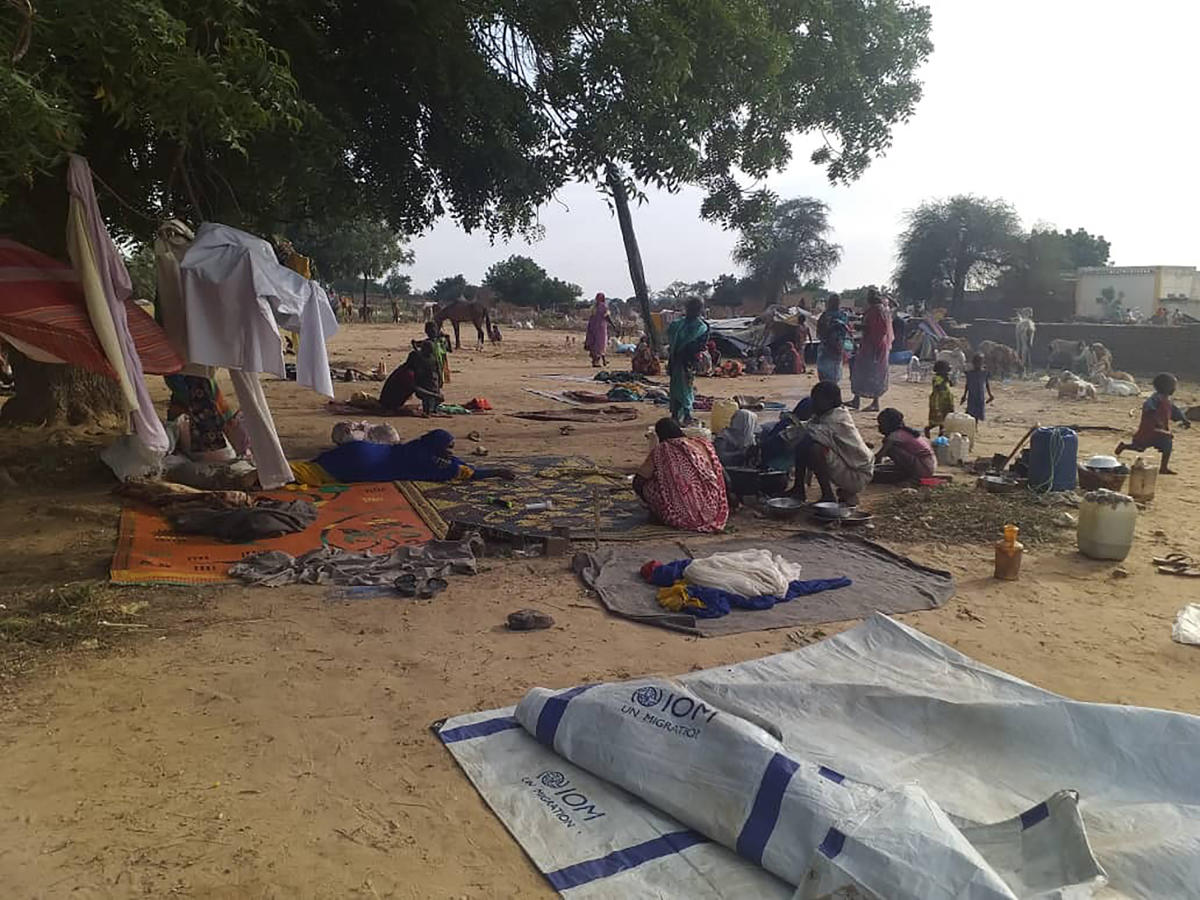Edem Wosornu, the director of humanitarian operations, told the U.N. Security Council that already one-third of Sudan’s population – 18 million people – face acute food insecurity, and catastrophic hunger levels could be reached in some areas of the western Darfur region by the time “the lean season” arrives in May.
“A recent assessment revealed that one child is dying every two hours in Zamzam camp in El Fasher, North Darfur,” she said. “Our humanitarian partners estimate that in the coming weeks and months, somewhere in the region of around 222,000 children could die from malnutrition.”
Wosornu called the harrowing violent situation that has seen appalling accounts of ethnic-based attacks, sexual violence including gang rapes, and indiscriminate attacks in densely populated areas, “the stuff of nightmares.”
With the global spotlight now on the Israeli-Hamas war in Gaza and to a lesser extent on the war in Ukraine, she lamented that “A humanitarian travesty is playing out in Sudan under a veil of international inattention and inaction.”
Sudan plunged into chaos last April, when long-simmering tensions between its military led by Gen. Abdel Fattah Burhan and the paramilitary Rapid Support Forces commanded by Mohammed Hamdan Dagalo broke out into street battles in the capital, Khartoum.
Fighting quickly spread to other parts of the country, especially urban areas, but in Darfur it took on a different form, with brutal attacks by the Arab-dominated Rapid Support Forces on ethnic African civilians. Thousands of people have been killed.
Two decades ago, Darfur became synonymous with genocide and war crimes, particularly by the notorious Janjaweed Arab militias against populations that identify as Central or East African. In late January, the International Criminal Court’s prosecutor, Karim Khan, said there are grounds to believe both sides in the current conflict are committing possible war crimes, crimes against humanity or genocide in Darfur.
The U.N.’s Wosornu said there has been no respite from fierce fighting in Khartoum, Darfur and Kordofan which are home to 90% of the people facing emergency levels of food insecurity.
Farmers have been forced to abandon their fields and cereal production has dropped since hostilities moved into Sudan’s breadbasket, Jazeera state, in December, she said.
In these circumstances, the delivery of humanitarian aid should be a lifeline, Wosornu said, but the U.N. appeal for $2.7 billion for Sudan in less than 5% funded – receiving just $131 million.
She expressed hope that a high-level donors conference for Sudan and its neighbors in Paris on April 15 will lead to “tangible commitments” to support aid operations “in the face of looming famine.”
In addition, Wosornu said, the U.N. must have access to reach the most vulnerable people in Khartoum, Darfur, Kordofan and Jazeera states which “continues to be severely obstructed” by the fighting. It also needs more cross-border openings and approvals to deliver aid across conflict lines, she said.
Carl Skau, the U.N. World Food Program’s deputy executive director, told the council the rapidly worsening food security situation in Sudan also has “profound regional implications.”
In addition to the 18 million people facing acute food insecurity in Sudan, he said 7 million people in neighboring South Sudan and nearly 3 million in Chad which borders Darfur also face dire hunger.
Currently, Skau said, 90% of people who are a step away from the catastrophic level of food security and urgently need life-saving food “are trapped in areas that are largely inaccessible to humanitarian agencies,” including Khartoum, Jazeera, Kordofan and Darfur.
“If we are going to prevent Sudan from becoming the world’s largest hunger crisis, coordinated efforts and joined up diplomacy are urgent and critical,” he said. “We need all parties to provide unrestricted access: across borders and across conflict lines.”
Echoing Wosornu’s call for funding, he said WFP had to cut assistance to 3 million acutely hungry people in South Sudan and reduce rations to others in need because of a lack of money. And in Chad, he said, WFP will have to end assistance to 1.2 million refugees and nearly 3 million Chadians.
Skau expressed concern that hunger will spike even higher when Sudan’s lean season arrives, and could reach catastrophic food insecurity unless there is sustained access and resources .
Rein Paulsen, Director of the FAO Office of Emergencies and Resilience, told a news conference that an agency report on Sudan issued Tuesday demonstrates the conflict’s damage to agricultural production: cereal production in 2023 dropped 46% below 2022, and up to 80% below in areas where the conflict was most intense.
“The outlook for food production in 2024 is bleak,” he said.
